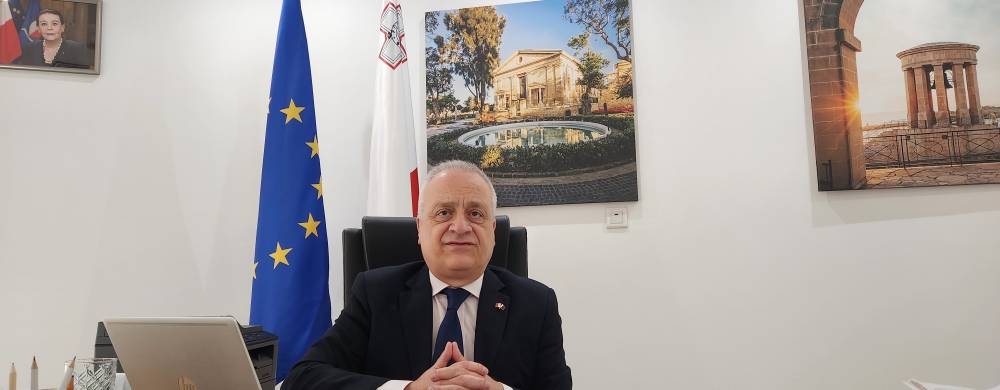Ashraf Siddiqui
HE Simon Pullicino, Ambassador of the Republic of Malta to Qatar, has affirmed that bilateral relations between Malta and Qatar are steadily strengthening, built on shared diplomatic values, strategic cooperation, and expanding cultural and economic ties.
Speaking exclusively to Qatar Tribune, the ambassador highlighted that the relationship has grown notably in recent years through high-level visits and diplomatic engagement. The President of Malta visited Doha in 2022, followed by ministerial delegations in sectors such as health, finance, education, and sports. Since his own appointment, two rounds of political consultations have taken place—one in Valletta and one in Doha—reflecting mutual interest in deeper collaboration.
Ambassador Pullicino emphasized Malta’s recognition of Qatar as a key partner in the Gulf. He praised Qatar’s diplomatic role as a regional mediator and reiterated Malta’s commitment to supporting Qatar both bilaterally and within the EU framework. Malta, he added, was among the first countries to express solidarity with Qatar following a recent Israeli attack, affirming its principled stance on international law and sovereignty.
He noted Malta’s notable diplomatic footprint in the Gulf, with embassies in Qatar, the UAE, Kuwait, and Saudi Arabia—an impressive presence given that Malta maintains only 36 embassies worldwide.
On trade, Ambassador Pullicino described current economic exchanges as modest but promising. Malta exports select goods to Qatar, including products from Foster Clark and Consolidated Biscuits, while imports from Qatar primarily involve petroleum-based products. To boost economic cooperation, the Chambers of Commerce from both countries are collaborating on joint business seminars. Malta’s strategic ties with Libya also open possibilities for trilateral cooperation in North African development.
In terms of investment, a milestone was reached with Qatar-based AlFaisal Holdings’ acquisition of a bank in Malta, reflecting growing Qatari confidence in the Maltese financial sector. On the other side, the Maltese hospitality group Corinthia is constructing a luxury hotel in The Pearl Qatar, Doha, and manages several high-end assets in Qatar, he added.
He said that like Qatar, Malta relies on seawater desalination due to limited natural water resources and is connected to the European electricity grid for its energy needs.
On the tourism front, Ambassador Pullicino warmly invited both Qatari nationals and residents to explore Malta. While visitors currently require a Schengen visa, he assured that applications are handled efficiently, and the Maltese Embassy in Doha facilitates the process within EU guidelines.
Tourism plays a central role in Malta’s economy, with over four million visitors annually. Despite its small size, the country offers a rich blend of heritage and leisure—from the baroque capital Valletta (a UNESCO World Heritage site), to the ancient city of Mdina, and the turquoise waters of the Blue Lagoon in Comino.
In his closing remarks, Maltese ambassador Simon Pullicino said that Malta is also a leading destination for English language learners and hosts cultural festivals, religious feasts, and spectacular firework displays throughout the year. The island’s cuisine reflects Mediterranean influences, with Italian flavours predominant and traditional dishes like rabbit and pork still widely enjoyed.
